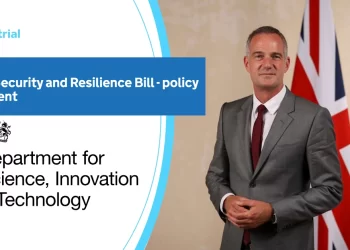It is already well known that the first impression is formed in a very short time. It can be shaped or completely changed later, but why not kick off with a head start? This is why it is worth paying attention to behavior from the very beginning if you want others to find you emphatic thus, more sympathetic.
New research has shown that there is far less time available to impress the other than most would think. Fortunately, it has also been revealed which are the most important little things in this case, which are guaranteed to achieve the desired result.
This is necessary for a positive impression
A study of 2,000 people at the Dollar Shave Club revealed that 69% of those surveyed have a first impression before their partner speaks, so they know in about 27 seconds whether they are sympathetic to the other or not. They then also examined what are the factors that contribute to a positive judgment at the first encounter.
53% of respondents mentioned smiles and courtesy, and 49% also emphasized the importance of eye contact. In addition, the list included good scent with 46%, appropriate accents, and body language, which 44% of subjects considered essential. And well-dressed was indicated by 42% of people. These count for the first half of the minute, but there were some that only really mattered later, but they were highlighted a lot: such was the ability to speak, to have a good audience, and many say it is essential for the other to know. to keep the conversation so that it does not seem embarrassing.
The results thus showed that these 11 factors have the greatest influence on the image of a person, and they are definitely worth paying attention to in the initial moments. It was also found that 85% of respondents say they have a more positive impression of the other if they smell good, and almost as many said that a confident look also matters a lot. What’s even more interesting is that during the dates, everything is decided even sooner: in as little as a few seconds, the parties form a picture of each other, and it only takes 15 minutes to decide if there will be a second meeting.
What makes you immediately antipathetic?
Researchers have, of course, also asked the question of what is what completely spoils the impression and what makes the other almost immediately antipathetic. 66% of subjects indicated unpleasant odor, 62% marked arrogant behavior, and 49% indicated unpretentious dressing. And when it comes to dating, rudeness, hygiene problems, excessive phone use, and nagging is considered the most confusing.
The results of the study can serve as a guide for everyone in case you are preparing for an important meeting where you have to win over the other one or look sympathetic: looking at the above things will make it easy to make a positive impression.
Controlled movements
Body language matters a lot when getting to know each other and later during communication, but not only does it matter how you gesture, but it can even matter what direction you stand or where your feet are looking. Find out what you need to do in the first few minutes after the meeting to be sure to win the other’s sympathy!
However, our emotions can have a big impact on our movements. So it’s advised to have calmness under pressure. Of course, this doesn’t happen overnight but you can exercise it. One great way would be to play roulette online and no matter the outcome try to control your emotions. Of course, you can have feelings, but try to act according to the best-case scenario.
Write the best scenario!
Not only are the stories important to others, but also the ones we tell about ourselves. The latter also affects the way we relate to a situation, the way we wait to enter a situation. If you’re a positive character in your own ‘inner’ story, you’re probably assuming that others will like you too. And if you live with that assumption, you’re more likely to find the other one to like. Psychologists have been aware of this phenomenon for more than five decades.
And a recent study draws attention to the other side of this phenomenon. If we live with the assumption that the other accepts us, it is more likely to happen. That’s why researchers at the University of Waterloo advise – even if you don’t have evidence to do so – to adjust your behavior to this positive assumption if you want to win the other party’s sympathy. That’s why leave the negativity and think more about the best possible scenario!
Don’t be in the spotlight
Of course, it doesn’t matter how we show our professionalism. Demonstrating our professional excellence — loud or hypocritical self-praise — is not exactly the most effective way to arouse sympathy. With this behavior, in most cases, we produce the exact opposite effect. For the other party, even if it shows no sign of this, questions what has been said, thinking “if it were really that great, it would not have to boast of its greatness.”
Self-incense is only effective, as the research of Alison R. Fragale and Adam M. Grant has shown if the audience’s attention is so scattered that they do not remember the source of the information. However, it is quite risky to base on the other party’s inattention. Therefore, instead of listing a long list of positive indicators, results, and experiences, think of a personal but short introduction.








































